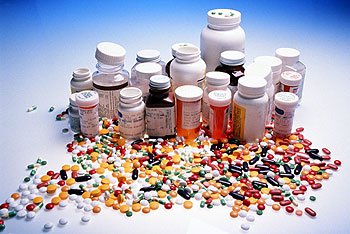President Obama recently received a letter from the National Association of Chain Drug Stores supporting his administration’s strategy to prevent and reduce prescription drug diversion or misuse. The NACDS believes pharmacists are “uniquely qualified to provide medication therapy management services” to patients to ensure they are prescribed correctly and take medications properly. The administration has been evaluating the issue by examining state controlled substances laws and the CSA (Controlled Substances Act). Currently, 35 states have Prescription Drug Monitoring Programs (PDMPs). These programs work to eliminate “doctor shopping” where drug seekers will fill prescriptions across state lines and the addition of more of these types of monitoring programs is in the strategy. The administration also hopes to implement a strategy of education, monitoring and enforcement that would include a requirement for doctors to assess and address any signs of abuse or dependence in their patients.
This comes as the U.S. experiences a prescription drug abuse crisis which some call an “epidemic”. There is great concern over the abuse of narcotic painkillers such as Percocet and OxyContin. Prescription drugs such as these have taken the place of many illegal substances on college campuses and other venues. Those struggling with alcoholism and drug addiction may also have addictions to prescription drugs. Patients receiving extra refills or getting these prescriptions through online pharmacies sell the pills and contribute to the alarming rate in the rise of prescription drug abuse. It is not as difficult to obtain these prescriptions through online pharmacies, many of which are outside the U.S. The U.S. Pharmacy Consumer Protection Act of 2009 prohibits the delivery of controlled substances not prescribed by a physician and the U.S. Food and Drug Administration has issued warnings to over 100 online pharmacies for violations of the Act.
Recognizing Prescription Drug Abuse Prescription drug abuse can be life threatening — especially in casual abusers. If someone you love takes prescription drugs to get high or takes too many pills, addiction may be a problem. It can be difficult to accept someone you care about is addicted to drugs or has become a drug abuser, and denial is common. Prescription drug abuse is a problem if: Your loved one often “loses” prescriptions or “forgets” medication frequently. Getting more prescriptions could be a sign of doctor shopping, which is illegal. Your loved one takes more pills than prescribed, or takes them faster than prescribed. This habit is extremely dangerous because it can lead to physical addiction and withdrawal. Your loved one combines drugs with alcohol. Fatal overdose is more common in individuals who casually abuse drugs and alcohol together than in those who are addicted, according to the federal government. Your loved one puts off quitting because of the unpleasant withdrawal symptoms.
There is no reason to suffer through flu-like symptoms, anxiety and depression, and intense cravings. Help is available for prescription drug abuse. Your loved one buys prescription drugs on the street, or has started using a harder, illicit drug such as heroin. Painkillers come from the opium poppy and produce similar effects. Individuals with painkiller problems sometimes turn to heroin because it is cheaper and easier to obtain. Your loved one lies about using drugs, which indicates shame and embarrassment. If you have caught your loved one lying about using, it may be time to get help. If these signs sound familiar, contact The Ranch PA for more information. (photo via)

